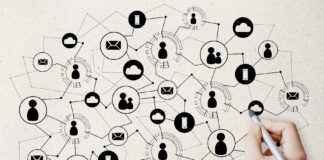
The youngest generations of the U.S. workforce are caught between their desire for change and the pressures of their daily lives. A new survey released by Deloitte reveals that members of Gen Z and Millennials are grappling with financial concerns while also prioritizing environmental action and dealing with high stress levels, all while the Great Resignation continues.
The Deloitte Global 2022 Gen Z & Millennial Survey found the top concerns for the 14,808 Gen Zs and 8,412 Millennials surveyed were cost of living (29% and 36%, respectively) and climate change (24% and 25%, respectively). Just under half of Gen Zs (46%) and Millennials (47%) reported living paycheck to paycheck, and over a quarter (26% of Gen Zs, 31% of Millennials) aren’t confident they will be able to retire comfortably.
In addition to financial stressors, protecting the environment is a top priority for both groups. Three quarters of Gen Zs (75%) and almost the same proportion of Millennials (73%) believe the world is at a tipping point when it comes to responding to climate change.
Given these circumstances, mental health for both groups continues to be a challenge. Nearly half of Gen Zs (46%) say they feel stressed all or most of the time, and 38% of Millennials agree with this statement, slightly down from the previous year. Top stress drivers for both groups are their long-term financial future (47% of Gen Zs and 43% of Millennials), day-to-day finances (42% of Gen Zs and 39% of Millennials), and the health/welfare of their family (42% of Gen Zs and 39% of Millennials).
The research indicated some key takeaways for business leaders:
- Support people struggling with economic uncertainty and financial stress. This includes competitive salaries as well as various benefits.
- Empower people to lead and drive change. Roughly two-thirds of both groups who said they feel empowered stay beyond 5 years.
- Implement hybrid work strategies. Almost half of both groups have the option to work remotely at least part of the time, and three quarters say this would be their preferred method of working.
- Prioritize climate action, and empower people to help. Millennials and Gen Zs want to be directly involved.
- Support better workplace mental health. Providing better mental health resources is an important first step.






